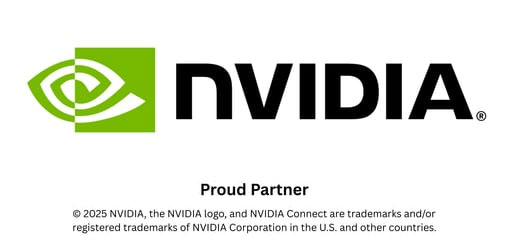There’s no question that AI is reshaping the finance industry at every level. Whether it’s sniffing out fraud in milliseconds or helping banks respond faster to volatile markets, the role of AI is no longer a theoretical talking point – it’s operational, impactful and very much here.
But beyond the hype, the real value lies in understanding where AI is proving its worth and how businesses can integrate it securely, compliantly and profitably.
Let’s unpack the current landscape, starting with the two domains where AI is making the most noise: risk management and fraud detection.
Risk Management: From Rear-View Mirrors to Predictive Intelligence
Risk has always been part of the financial game. But the tools we use to manage it are evolving fast. Where traditional systems rely heavily on historical data and lagging indicators, AI offers a leap into real-time insight and predictive foresight.
Take JPMorgan Chase, for instance. According to a May 2025 report from Reuters, the bank has deployed AI across its asset and wealth management division to help navigate market volatility. The results? Faster, more personalised service delivery – and a reported 20% jump in sales. Reuters
This isn’t just automation – it’s augmentation. And it’s rapidly becoming the new standard for risk-aware decision-making.

Fraud Detection: Smarter Systems for Smarter Criminals
Fraud is getting smarter. So must we.
Where older fraud detection systems often struggled with either being too rigid (missing clever scams) or too sensitive (triggering false positives), AI strikes a more nuanced balance. It learns from real-time patterns, flags anomalies in context and adjusts over time, without requiring constant reprogramming.
One recent academic review highlighted how machine learning has revolutionised fraud detection, helping reduce false alerts and enabling financial firms to respond faster to new scam tactics. arXiv
Meanwhile, AI-first firms like Feedzai and Guardian Analytics are deploying platforms that can detect fraud within milliseconds, while adapting continuously to emerging threats.
Beyond Fraud & Risk: Where Else Is AI Going in Finance?

The real magic of AI is that it doesn’t stop at one domain. We’re seeing serious momentum across:
Customer service: AI-powered assistants that resolve queries, track transactions, and offer financial advice – all within seconds.
Regulatory compliance: Tools like ComplyAdvantage use AI to scan for money laundering risks and help firms stay compliant without overburdening compliance teams.
Portfolio optimisation: AI engines are now used to generate highly personalised investment strategies based on real-time market data and client preferences.
Autonomous agents: According to Financial Times, the next generation of AI isn’t just a tool – it’s becoming a decision-maker. From credit assessments to smart contract management, AI is increasingly stepping into mid-level financial tasks. FT
But It’s Not All Smooth Sailing: The Big Challenges Ahead
As always, the devil is in the details. Rolling out AI at scale in finance isn’t without its risks. Here are the three big ones every company needs to watch:
1. Bias and Bad Data
Garbage in, garbage out. If your AI is trained on skewed or incomplete data, the decisions it makes could reflect those same biases, whether that’s in credit scoring, fraud detection, or hiring algorithms.
2. Regulatory Complexity
The EU’s AI Act places financial AI systems in the “high-risk” category. That means strict obligations around transparency, auditability and human oversight. Missteps here won’t just cost money – they’ll cost reputational trust.
3. The Black Box Problem
Even when AI gets things right, it’s often hard to explain how. That lack of transparency can be a major roadblock in finance, where compliance and accountability aren’t optional.
Making AI Work: A Smarter Path Forward
AI is neither a silver bullet nor the snake oil. It’s a tool – and like any tool, it needs a responsible operator. To make the most of AI in finance, I believe companies should:
Invest in high-quality, European-relevant datasets to reduce training bias and ensure compliance.
Design for explainability, not just accuracy. If you can’t explain your AI’s decisions, your auditors and customers won’t trust them. And it’s not going to pass the audits, either.
Build modular AI stacks that integrate securely with core systems – and allow human override when needed.
Keep compliance at the centre of every AI initiative. Not an afterthought. Not a tick-box exercise. But the foundation.
Final Thought: Is AI in Finance Worth It?
Without a doubt, yes – but only for those willing to do it right.
From reducing fraud to optimising investment strategies, AI is quietly transforming the financial industry. But the real ROI will come to those who treat AI not as a trendy plug-in, but as a long-term pillar of their business infrastructure.
And the question you should ask yourself isn’t whether to adopt AI, but how resilient, transparent and compliant your AI stack really is.
Victor A. Lausas
Chief Executive Officer





